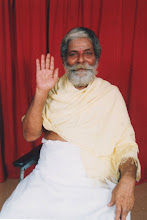Sutra 6: 'Pramana viparyaya vikalpa nidra smruthayah'
These five kinds of thought-waves are:
1) Right knowledge
2) Wrong knowledge
3) Verbal delusion
4) Sleep
5) Memory
Sutra 7: 'Prathyaksha anumaanaagamaah pramanani'
The right kinds of knowledge are, direct perception, inference and scriptural testimony.
Whatever our senses perceive is right knowledge, provided that there has been no element of delusion. whatever we infer from our direct perception is also right knowledge, provided that our reasoning is correct. The scriptures are based upon the super conscious knowledge obtained by great spiritual teachers while in the state of perfect yoga. Therefore they are also right knowledge. They represent a kind of direct perception far more immediate than the perception of the senses.
Sutra 8: 'Viparyayo mithyajnanam athadrupa prathishtam'
Wrong knowledge is knowledge which is false and not based upon the true nature of its object. The classical example given in yoga literature is that of a piece of rope which is mistaken for a snake. In this case, wrong knowledge will cause us to fear the rope and avoid it or try to kill it. Thus wrong knowledge is far away from the truth.
Sutra 9: 'Shabdhajnanaanupathi vasthushoonyo vikalpah'
Verbal delusion arises when words do not correspond to the reality.
A common form of verbal delusion is jumping to conclusions. We hear somebody speaking and form a hasty and inaccurate picture of his meaning. In political speeches one often finds a double verbal delusion: the speaker believes that his words correspond to one reality, the audience attaches them to another - and both are wrong. These verbal delusions are empty words and descriptions, imaginations, hallucinatory expressions, which have no corresponding reality. But they may appear realistic or inspiring or satisfying. Actually they are far from the reality, hence they are least trustworthy.
Sutra 10: 'Abhava prathyayaalambana vritti nidra'
Sleep is a wave of thought about nothingness. That is to say, a dreamless sleep is not an absence of thoughts, but a positive experience of nothingness. It cannot be confused with the wave less state of yoga. If there were no thought-waves in the mind during sleep, we should not wake remembering that we knew nothing. Such continuity of thoughtless experience makes it necessary for us to admit a permanent Self underlying all contents of consciousness.
Sutra 11: 'Anubhutha vishyaa sampramoshah smruthih'
Memory is when perceived objects are not forgotten, but come back to consciousness.
Memory is a kind of secondary thought-wave. A wave of direct perception causes a smaller ripple or series of ripples. The thought-wave of sleep also causes smaller ripples, which we call dreams. Dreaming is nothing but remembering in your sleep. So memory gives the same impact on the mind, as at the time of the original experience, but with or without the original details and emotional responses.
Try to understand these Sutras, if you find difficulty in understanding, please reply to this post.
From next few Sutras, we will come to know how to attain thoughtless state.
Its enough for today.
bye now.

No comments:
Post a Comment